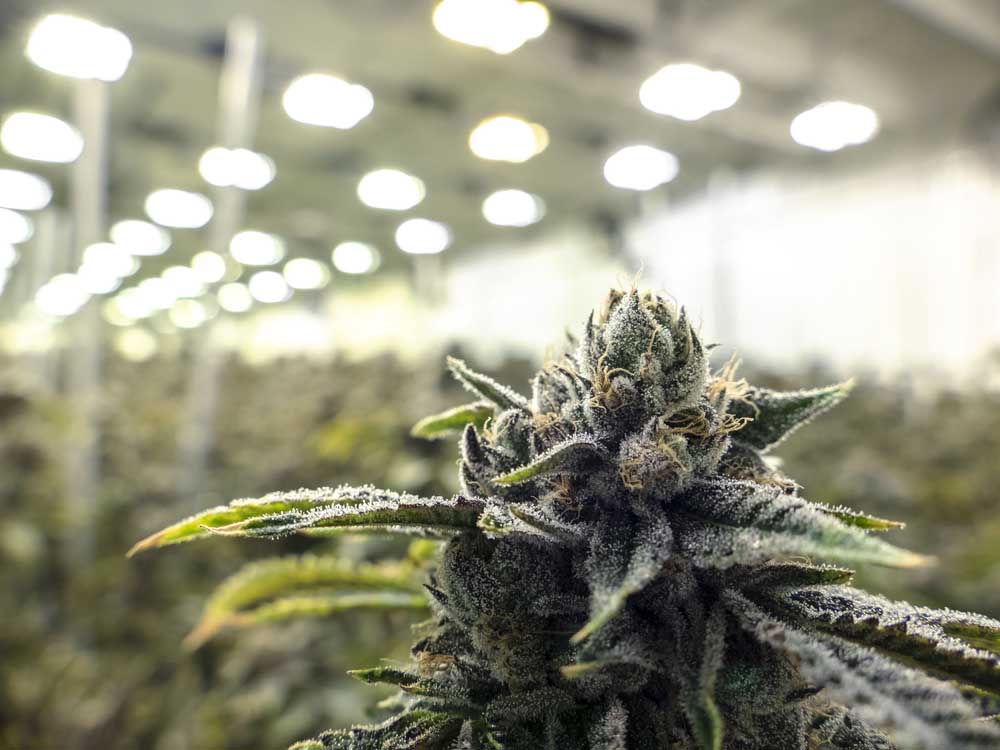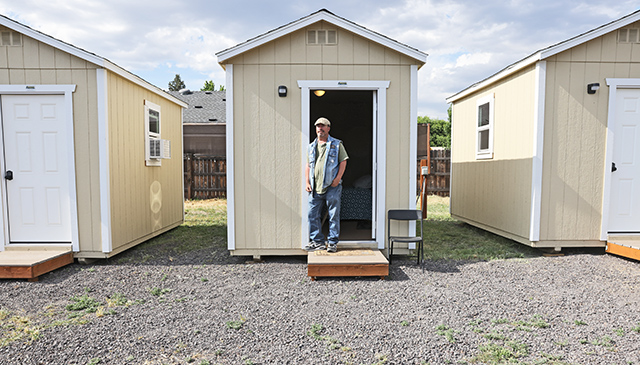Redmond council hears from experts, public on marijuana dispensaries
Published 6:30 pm Wednesday, May 17, 2023

- Stock image
One topic has repeatedly been discussed in Redmond’s cafes, breweries and homes since the new city councilors took their seats five months ago: marijuana dispensaries.
On Tuesday, the council held its first public discussion on the topic and Redmond turned out. Dozens of people filled the council chamber to listen to experts and give their two cents — whether to uphold the city’s current ban on recreational dispensaries or establish rules to regulate them.
At the meeting, council members listened to both the positives and negatives of allowing dispensaries within city limits and asking questions. No official action was taken.
Background and rules
After Oregon legalized recreational marijuana in 2014, Redmond chose to opt out of the statewide dispensary program, because the sale and consumption of cannabis remain federal offenses, according to a city of Redmond staff report.
If the council decides to allow dispensaries within city limits, it would need to implement time, place and manner regulations as well as agree on a local taxation rate.
According to Oregon Revised Statutes, there is a 17% state sales tax on all recreational marijuana products, which is then spread across participating state and local governments through quarterly payments.
Only cities that permit dispensaries are eligible to receive this money. Eligible cities receive 10% of the total marijuana tax revenue, which is distributed among cities based on their population and the number of licensed dispensaries located in city limits. According to the Oregon Municipal Handbook, this means a city without any dispensaries could still technically receive a share of the population-based revenue, as long as dispensaries are not banned.
According to Sharon Wojda, Bend’s chief financial and administrative officer, the city’s voters approved an additional 3% local tax on the sale of marijuana after Bend legalized dispensaries. In the first two years, the local tax brought in an average of approximately $900,000 per year.
In the 2021-2022 fiscal year, that number stood at about $1.5 million.
But at the same time, the state tax revenue Bend received has decreased from just over $400,000 in 2020-2021 to about $184,000 in 2021-2022 due to Measure 110 reducing marijuana revenues returned to municipalities.
Minors and safety
Members of the Redmond School Board have repeatedly spoken at council meetings against marijuana dispensaries, arguing that opening outlets in the city would lead to more minors consuming cannabis. Using marijuana as a minor is illegal in Oregon, and would remain so if Redmond allowed dispensaries.
According to a letter from the school board presented by Michael Summers, board chair, a study by Oregon Health & Science University showed a 245% increase in school-age calls to poison control centers regarding marijuana use in the last 20 years.
“Anecdotal data for Redmond School District indicates that a primary source for obtaining marijuana for school-aged students is from the home and or siblings,” Summers said.
“Increased accessibility is creating a pathway for illegal and harmful drug use for our students.”
According to Deschutes County District Attorney Steve Gunnells, the problems law enforcement encounter from legalized marijuana have mostly been related to driving under the influence and juveniles in possession of marijuana products, particularly dried marijuana, gummies and vape pens with THC.
“That has increased in my perception,” Gunnells said. “It’s also the perception of law enforcement.”
However, Bend Police Chief Mike Krantz said the number of citations for minors possessing cannabis has remained about the same for a long time, despite a large increase in the Central Oregon population. Bend officers have not seen a huge increase in these cases, Krantz said.
Gunnells said there’s no evidence dispensaries are selling directly to minors and that there’s too much at risk for their business licenses if they do.
Both Krantz and Gunnells believe minors are getting cannabis from friends or family who are 21 years old or older.
“There isn’t a huge impediment to somebody having a 21-year-old friend run over to Bend to pick up marijuana versus if there’s a marijuana dispensary on Fifth Street,” Gunnells said.
Krantz agreed.
“There’s no one trend where we could say that’s where it’s coming from,” Krantz said. “It’s not really changed over time.”
According to Deevy Holcomb, director of Deschutes County Community Justice, the department has not seen a drastic influx of juvenile referrals for minors in possession of marijuana. Holcomb said the increased social and pop culture approval of marijuana has likely played a more significant role than dispensaries.
Despite permitted dispensaries in Bend, Holcomb said the number of citations given to minors with cannabis in Bend and Redmond are consistent relative to their respective populations.
“We don’t see a real distinction,” Holcomb said.
In terms of DUIIs, Gunnells said the numbers skew heavily toward alcohol. In 2018, there were 981 alcohol-related DUIIs and 136 marijuana-related DUIs. In 2022, those numbers stood at 1,017 and 144, respectively.
“The numbers stayed pretty consistent,” Gunnells said. “If you have to weigh the threat, alcohol is the bigger threat on the roads.”
Deschutes County has seen an increase in dual intoxication for DUIIs — meaning those under the influence of two or more substances.
According to Krantz, Bend Police respond to roughly the same number of calls for service at the city’s 27 dispensaries as it does for the city’s seven liquor outlets.
Krantz noted that one of the issues police have noticed is odor, mostly around growing operations, as the city does not have an odor-code restriction requiring carbon filters or any type of filtration system.
“The biggest issue we have currently really is on 4/20 we have a lot of parking around some of the outlets and our officers have to go out and address the parking issues,” Krantz said.






